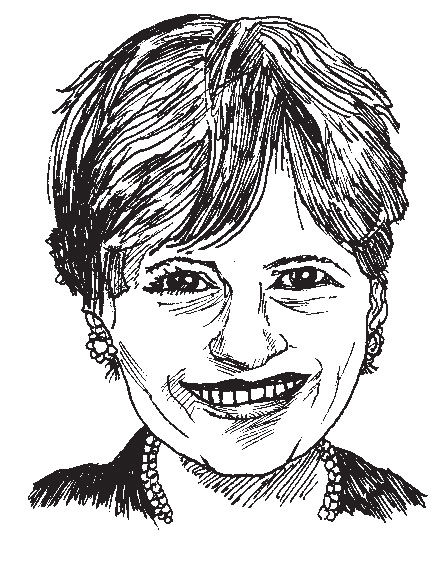In the history books of classical music, few pages are given to arts administrators. Composers and conductors are cast as the star characters. Managers make unromantic heroes. Administration is not a vocation for genius. But when the annals of the twenty-first-century American orchestra are written, I think they might begin with Deborah Borda, the president and CEO of the Los Angeles Philharmonic.
During her fifteen-year tenure, Borda has reinvented the LA Phil’s public image. She completed the most iconic symphony hall of this century in Walt Disney Concert Hall—Frank Gehry’s steel hurricane of warped silver sails—which offers a glaring hellmirror for daytime traffic and a futuristic Xanadu for evening concertgoers. She rebuilt the Hollywood Bowl as the symphony’s summer home and changed its programming, turning the open-air amphitheater into a financial juggernaut for pop acts. But most important, in 2007 she signed then twenty-six-year-old Venezuelan phenom Gustavo Dudamel (the star pupil of Venezuela’s famed music program El Sistema). Dudamel electrifies crowds, earning the affectionate nickname “the Dude,” and has become the most celebrated conductor on the planet.
The LA Philharmonic is the most successful orchestra in the country. Los Angeles has the largest performing budget of any American symphony, commissions the most world premieres of any orchestra in the world—and, astoundingly, keeps a balanced budget. At a time when many major East Coast orchestras are battling huge deficits, the LA Philharmonic is undergoing a full renaissance. In 2013, it brought in $59 million from concert ticket sales alone—more than the combined total for Chicago’s and New York’s symphonies in the same period—and $125 million in revenue. Its season schedule has grown from ninety concerts to nearly three hundred. And the invisible hand behind these impressive stats belongs to Deborah Borda.
Before Borda came to Los Angeles, she was general manager of the San Francisco Symphony, president of the Saint Paul Chamber Orchestra, and director of the Detroit Symphony Orchestra. In 1991 she became the executive director of the New York Philharmonic, making her one of the first women to manage a major American orchestra. But, in a shocking move, in 2000 she left the NY Phil—then the career Olympus of American orchestras—to take over the floundering symphony in Los Angeles. It was there that she found the potential she was looking for: the freedom to turn from the orchestra’s conservative past and look toward its future. The freedom to think the orchestra could be different in the next century than it had been in the last.
I conducted this interview at Disney Concert Hall in Borda’s spacious office. Borda had just left a photo shoot and was sharply dressed in a blazer over crisp jeans. She spoke with warmth and ...
You have reached your article limit
Sign up for a digital subscription and continue reading all new issues, plus our entire archives, for just $1.50/month.
Already a subscriber? Sign in





